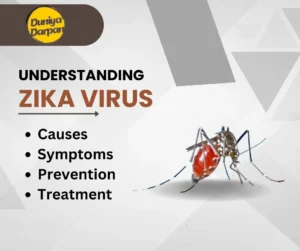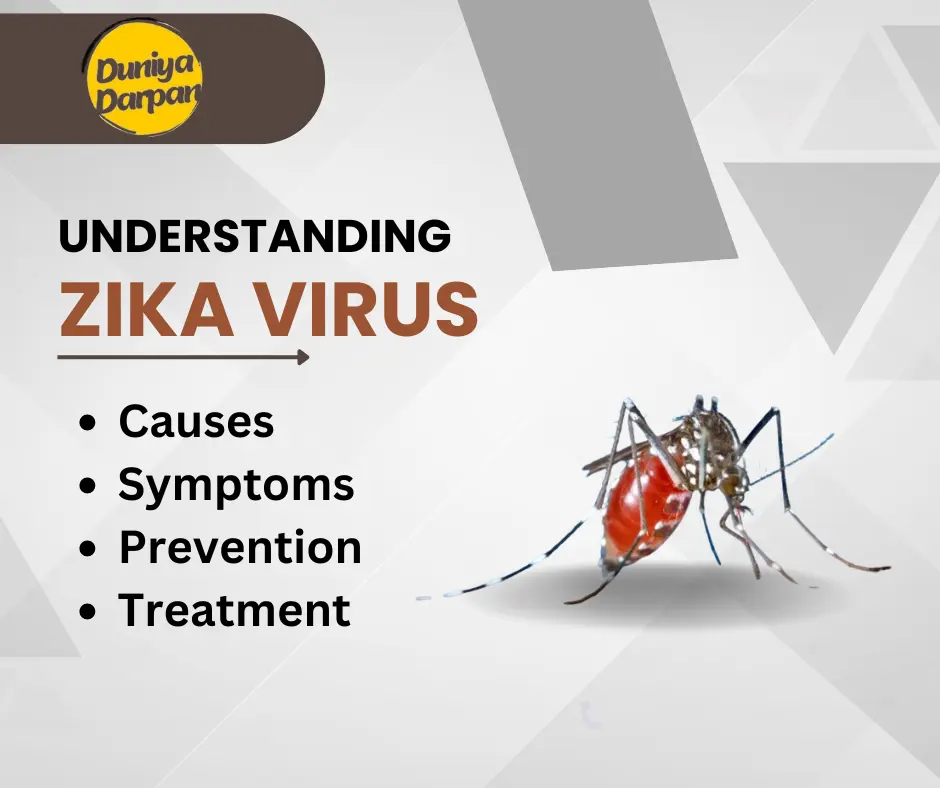What is the Zika Virus?
The Zika virus is a disease primarily spread by mosquitoes. It was first discovered in 1947 in Uganda and has since spread to various parts of the world, including India.

A mosquito-borne illness, has garnered global attention due to its rapid spread and serious health implications, especially for pregnant women and their unborn children. This comprehensive guide explores the key aspects of the Pune, Bengaluru, virus, including its symptoms, methods of prevention, and available treatments.
Symptoms of Zika virus
The symptoms infection are typically mild and can often be mistaken for other viral infections. Common symptoms include:
- Fever
- Rash
- Joint pain
- Conjunctivitis (red eyes)
- Muscle pain
- Headache
These symptoms usually appear within 2 to 7 days after being bitten by an infected mosquito and can last for several days to a week. Many people infected with the Zika virus do not experience symptoms, making it challenging to diagnose without proper medical testing.
Prevention of Zika virus
Preventing infection primarily involves avoiding mosquito bites and reducing mosquito populations. Key prevention strategies include:
- Using insect repellent containing DEET, picaridin, or oil of lemon eucalyptus.
- Wearing long-sleeved shirts and long pants.
- Staying in places with air conditioning or using window and door screens to keep mosquitoes outside.
- Sleeping under mosquito nets if air-conditioned or screened rooms are not available.
- Eliminating standing water around your home where mosquitoes can breed, such as in flower pots, gutters, and tires.
For pregnant women, who are at a higher risk due to the potential for severe birth defects in their babies, it is especially important to take preventive measures and avoid traveling to areas with active virus transmission.
Treatment
There is no specific antiviral treatment for Zika virus infection. Treatment focuses on relieving symptoms and includes:
- Getting plenty of rest.
- Drinking fluids to prevent dehydration.
- Taking over-the-counter medications like acetaminophen to reduce fever and pain.
- Avoiding aspirin and other non-steroidal anti-inflammatory drugs (NSAIDs) until dengue fever can be ruled out to reduce the risk of bleeding.
If you suspect you have been infected with this virus, it is important to see a healthcare provider for proper diagnosis and care. Pregnant women should seek immediate medical attention if they suspect virus infection.
How is the Zika Virus Spread?
This virus is mainly spread through the bite of an infected Aedes mosquito. These mosquitoes are active during the day and can also spread other diseases like dengue and chikungunya. Additionally, this virus can be transmitted through:
- Sexual contact
- Blood transfusions
- From a pregnant woman to her baby
Why is the Zika Virus Dangerous?
This virus is particularly dangerous for pregnant women because it can cause serious birth defects, including microcephaly, a condition where a baby is born with a smaller head and brain. So This can lead to developmental delays and other health problems in babies.
infections in Babies and kids
Babies born to mothers infected with the Zika virus during pregnancy may suffer from severe health issues, including brain damage and developmental delays. Children infected with usually experience mild symptoms similar to those in adults, such as fever, rash, and joint pain. However, it is crucial to protect them from mosquito bites to prevent infection.
Can Zika Virus be Sexually Transmitted?
Yes, this virus can be sexually transmitted.
Difference Between Zika Virus and Dengue
Both Zika and dengue viruses are spread by the same type of mosquito, but different viruses. Dengue often causes more severe symptoms compared to Zika, including high fever, severe headache, pain behind the eyes, joint and muscle pain, rash, and mild bleeding.
Countries Affected by this Virus
The Zika virus has affected many countries around the world, especially in tropical and subtropical regions. Some of the affected countries include Brazil, Colombia, India, and various countries in Southeast Asia and Africa. In India, cases have been report in various states, including Maharashtra, Tamilnadu and Kerala and cities like Pune, Bengaluru, Health officials are closely monitoring the situation to prevent further outbreaks.
Which Mosquito Causes Zika Virus?
The Zika virus is spread by the Aedes mosquito, particularly Aedes aegypti and Aedes albopictus.
Where is the Zika Virus Found?
This virus is found in many tropical and subtropical regions around the world, including parts of Africa, Southeast Asia, the Pacific Islands, and the Americas.
Effects of the virus
In addition to causing birth defects in babies, the Zika virus can lead to Guillain-Barré syndrome, a rare condition in which the immune system attacks the nerves, causing muscle weakness and sometimes paralysis.
Zika Virus in Maharashtra, Kerala and cities Pune, Bengaluru,
Recently cases have been reported in Maharashtra, Pune, Bengaluru, and Kerala, prompting health authorities to take measures to control the spread of the virus and protect public health.
By understanding the virus and taking preventive measures. However, we can reduce the risk of infection and protect vulnerable populations, especially pregnant women and their babies.


3 thoughts on “Understanding Zika Virus: Symptoms, Prevention, and Treatment”